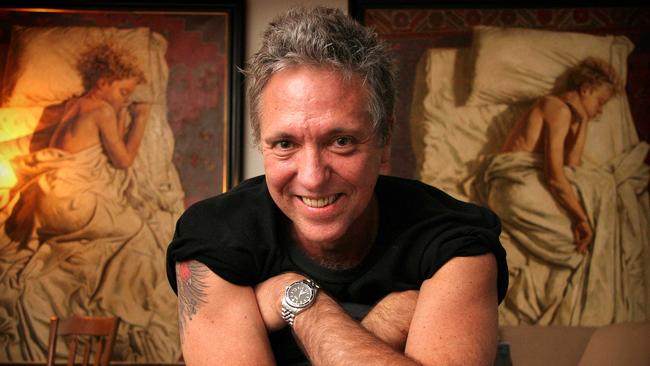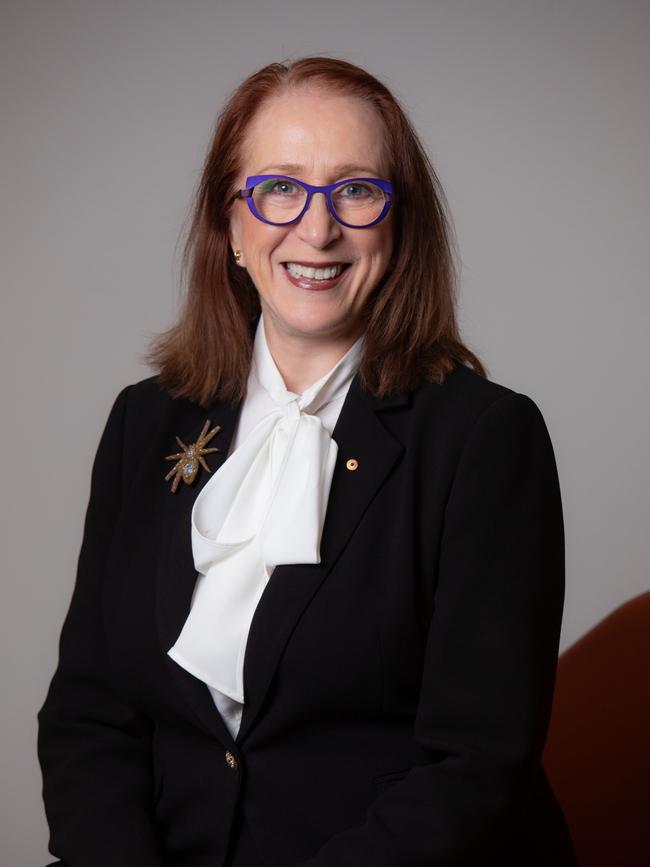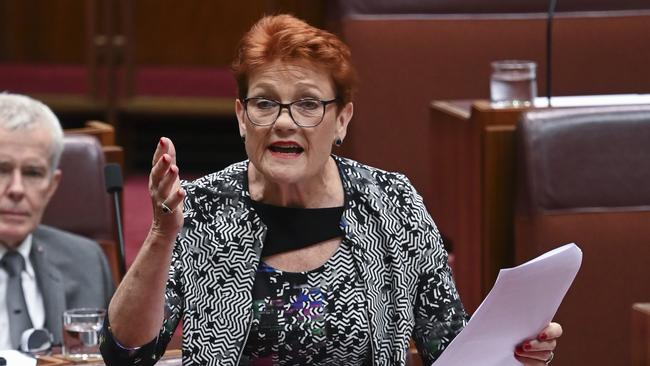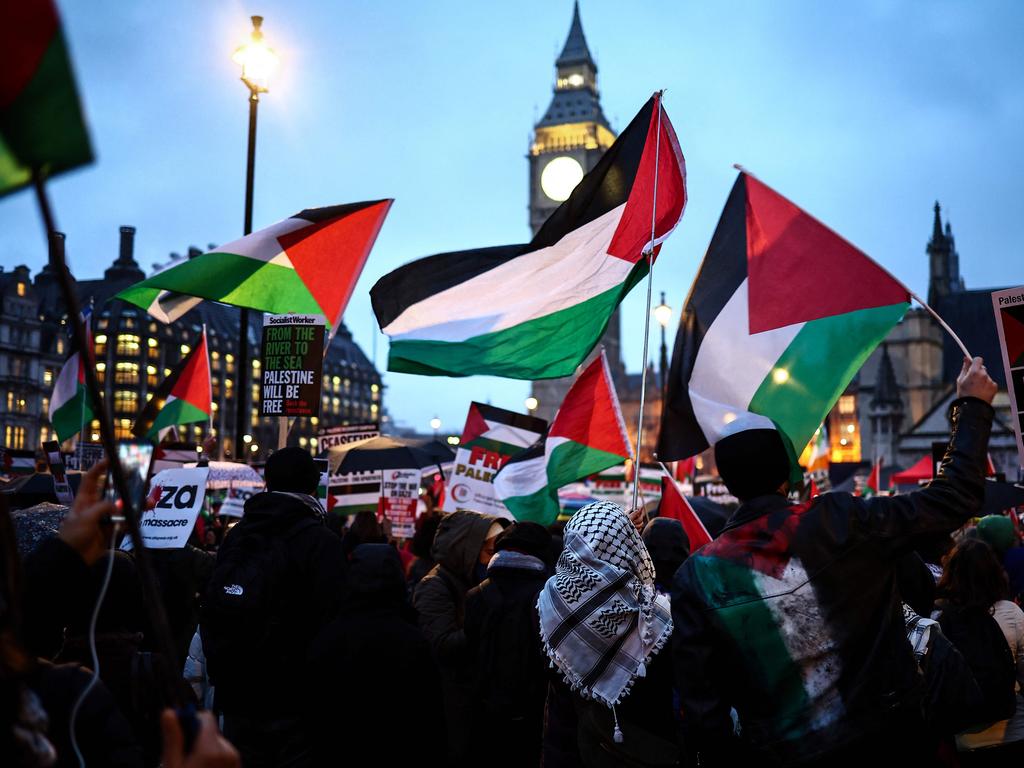Anti-Semitic remarks are odious, but using section 18C to silence them is downright dangerous
Anti-Semitic remarks are odious, but using section 18C to silence them is downright dangerous.

Not least of these reasons is recalling what happened after the publication of Leak’s cartoon. Race commissioner Tim Soutphommasane told Indigenous people that if they felt racially insulted, offended, humiliated or intimidated, they could lodge a complaint with the Australian Human Rights Commission under section 18C of the Racial Discrimination Act.
After a complaint was duly lodged, the AHRC wanted to know Leak’s motives for drawing the cartoon. Leak refused to bow to government-appointed thought police.
Some months later, then president of the AHRC, Gillian Triggs, said the whole thing might have gone away if only Leak had told the commission he drew the cartoon in good faith.
It was passing strange that a “human rights” president didn’t understand that it is a dark day when people paid by the government demand to know what’s going on in your head when you’re exercising your right to free speech.
In any case, the university-educated commissars at the AHRC need only have looked at the cartoon to understand what Leak was thinking. It was plain as day.
In November that year, the woman who lodged the complaint withdrew it.
Before he died in March 2017, Leak took aim at his critics, describing them as toddlers suffering from “Chronic Truth Aversion Disorder” when all he was doing was trying to tell the uncomfortable truth.
Alas, the AHRC would go on to prove, in subsequent 18C complaints, that when it comes to free speech, the most fundamental of human rights, the commission is worse than useless. It is dangerous. Instead of throwing out an unmeritorious complaint, the AHRC’s flawed processes punished a couple of QUT students for posting this ironic remark about an Indigenous-only computer lab: “QUT stopping segregation with segregation.”
This week, Liberal MP Julian Leeser accused the AHRC of being entirely useless in denouncing the rise of anti-Semitism in Australia. He is right. Current commission president Rosalind Croucher could surely find some time to give a public address at a university, perhaps publish a few op-eds in The Guardian, and appear on the ABC’s Q+A to convince a few open-minded people on the left that anti-Semitism is wrong.
But what more should the commission do? Personally, I prefer my overpaid bureaucrats to be useless, if the alternative is dangerous.

The commission would indeed become worse than useless if it were, once again, to be seen to encourage use of 18C to make complaints about anti-Semitic comments that might – to use the language of the section – offend, insult, humiliate or intimidate someone because of their race or ethnicity.
To be sure, one can understand why fears among Australian Jews about the surge in anti-Semitism in this country may, even without encouragement from the AHRC, lead them to use 18C as a weapon of last resort. But 18C is a fundamentally bad law and should be repealed – until it is, Jews might as well use it to the fullest.
Plenty of people, including me, have argued that 18C is an unreasonable infringement on our right to speak freely. If the right to speak freely applies only to words that provide comfort, words that one agrees with, it is meaningless. Free speech is the machinery that underpins our democracy because it empowers people to say things that are uncomfortable, to say things that buck the orthodoxy, to say things that some will find offensive, to say things that may not even be true.
Australia’s legal and cultural failures on free speech are twofold. First, we have laws to punish those who incite violence, but law enforcement agencies don’t use these laws. Second, many of our institutions promote a system of competitive victimhood, where people vying for victimhood status are infantilised by a bevy of laws and social diktats about what can and cannot be said.
When extremist Hizb ut-Tahrir leader Ismail al-Wahwah called for a “jihad against Jews” during a sermon to Lakemba mosque in 2015, it was surely worth testing to see if those odious remarks amounted to incitement to violence. But nothing happened.
Fast forward to 2024. While these laws remain unenforced, extremists, including anti-Semites, continue to incite violence against Jews after the October 7 Hamas terrorist attacks.
The AHRC would be of far more service to the country telling us that the focus in a free society should be on enforcing laws that prohibit words that incite violence, not on laws that allows a person to silence another because their feelings have been hurt.
Instead, the commission is strangely quiet on both fronts.
It’s strange because in December 2015 the Australian Law Reform Commission said this about s18C in its report on the encroachment of our traditional rights and freedoms: “... s18C of the RDA would benefit from more thorough review in relation to implications for freedom of speech. In particular, there are arguments that s18C lacks sufficient precision and clarity, and unjustifiably interferes with freedom of speech … the provision is broader than is required under international law, broader than similar laws in other jurisdictions, and may be susceptible to constitutional challenge.”
Croucher was president of the ALRC at that time.

Last week, constitutional professor Anne Twomey explored the constitutional validity of 18C, particularly whether there is a constitutional head of power to support it. In one of her regular YouTube legal tutorials, Twomey says it is possible that the High Court may find that section 18C goes much further than Australia’s international treaty obligations, and therefore infringes our fundamental right to free speech.
Legal academics Lorraine Finlay, Joshua Forrester and Augusto Zimmermann have written extensively on why section 18C is unconstitutional. The law, they say, lacks a legitimate head of power in the Constitution to support it, and separately infringes the implied freedom of political communication.
Finlay is now the Human Rights Commissioner.
It’s high time the AHRC shared its views about these major legal uncertainties – especially at a time when 18C may be invoked to shut down speech that is alleged to be anti-Semitic.
Anti-Semitism is a moral evil. It preys on Jews who remember only too well when vicious forms of anti-Semitism in the 1930s turned into violent pogroms, Kristallnacht, trains to death camps, and the Holocaust. Anti-Semitic remarks that incite violence should be prosecuted. But not every anti-Semitic statement reaches the threshold of inciting violence.
If anti-Semitism falls short of statements that incite violence, then it should be left to us – and the AHRC – to condemn those statements, rather than allowing 18C to become the weapon of choice to punish and silence offensive and ignorant statements.
Why is the AHRC so quiet about 18C? This otherwise noisy body has not been shy in sharing its views on other legal matters, including its proposal for a Human Rights Act. But it won’t surprise you to hear that the commission appears more concerned about suggesting a new batch of laws that would increase its powers and reach, than even investigating reforms to section 18C that would boost our rights to free speech – and necessarily curtail the reach of the Australian Human Rights Commission.

For now, we should thank Pauline Hanson that these important legal questions about 18C are being raised at all. Greens senator Mehreen Faruqi is suing Hanson under 18C claiming she was offended when Hanson tweeted that she should “piss off back to Pakistan”. Hanson’s tweet was in response to a tweet by Faruqi in September 2022, in which the Greens senator said she would not mourn the death of Queen Elizabeth II because the Queen was the leader of a “racist empire built on stolen lives, land and wealth of colonised peoples”.
Condolences to those who knew the Queen.
— Mehreen Faruqi (@MehreenFaruqi) September 9, 2022
I cannot mourn the leader of a racist empire built on stolen lives, land and wealth of colonised peoples.
We are reminded of the urgency of Treaty with First Nations, justice & reparations for British colonies & becoming a republic.
For purely selfish reasons, when one looks at a sample of Faruqi’s nutty opinions, she should be defending free speech, rather than running off to the AHRC complaining that she is offended by something Hanson has said. Faruqi’s comment, for example, that our federal government supports “Israel’s genocide” is deeply offensive and ignorant.
Shame on Labor for supporting the bloodbath that is Israel’s genocide, occupation and oppression of Palestinians.
— Mehreen Faruqi (@MehreenFaruqi) February 27, 2024
And so were Faruqi’s comments last year that Australia was a “criminal” nation, responsible by its inaction on climate change, for the floods last year in Pakistan.
Hanson’s comment may well have offended Faruqi. And so what? X, formerly Twitter, is a cesspool. Get a life. Move on.
That said, Faruqi’s claim to be a victim has enabled Hanson to carry out an important public service by asking the courts to tell us whether 18C is constitutional.
Even if 18C is constitutional, the next question for us is: is 18C an appropriate law for a democracy where some debates will inevitably cause offence to some people?
At a time of increasing tensions and passions, with growing claims of anti-Semitism and deep concerns about civilian deaths in Gaza, some people will express views that are uncomfortable, often offensive, even anti-Semitic.
In a healthy democracy, we should go head to head with these views, robustly debating difficult questions and offensive opinions. What, for example, is anti-Semitism? Is the phrase being used too loosely in an effort to curtail free speech? When we say that Hamas must be destroyed, the pertinent question surely is, at what cost?
Only this messy, noisy, and magnificently liberal process will allow us to ask hard questions, test our own views, hear a range of views, settle on the most sensible ones, and confidently toss aside the offensive and dumb ones.
What’s not to love about a free society that encourages people to be robust, to think for themselves and, where appropriate, to use public shame as a weapon rather than playing the victim by using a legal sledgehammer to silence people who may make hurtful, even anti-Semitic, statements.
To paraphrase Twomey, when we hear someone make a disgracefully racial or religious or even anti-Semitic slur, rather than being incited to racial, religious or anti-Semitic hatred, it is just as likely, or probably even more likely, that we will be disgusted by their conduct.








In August 2016, Bill Leak drew a famously controversial cartoon depicting the family squalor facing some Indigenous children in the Northern Territory. After the confronting reporting about Alice Springs by Liam Mendes this week, there are many reasons to revisit Leak’s powerful pictorial commentary about the relationship between Indigenous family dysfunction and high rates of juvenile crime and incarceration.